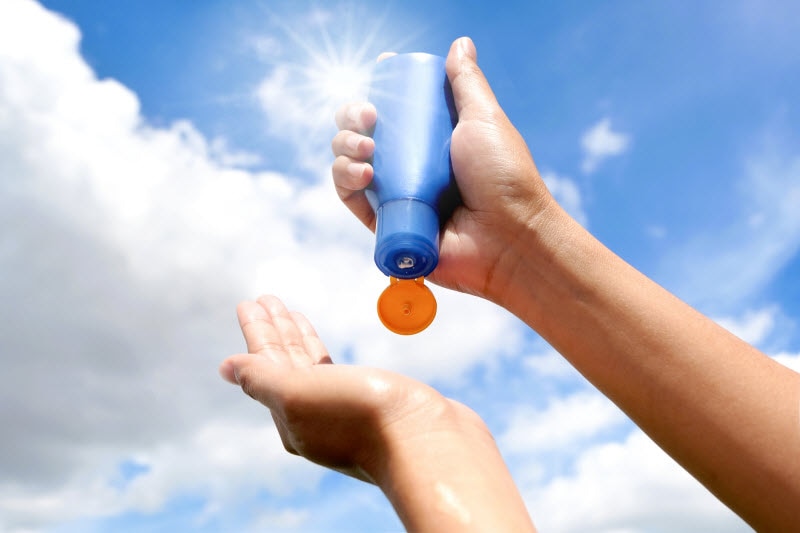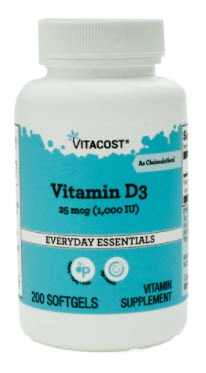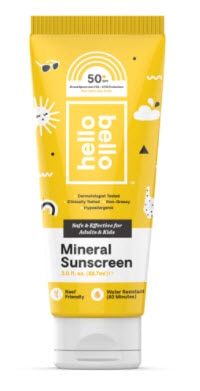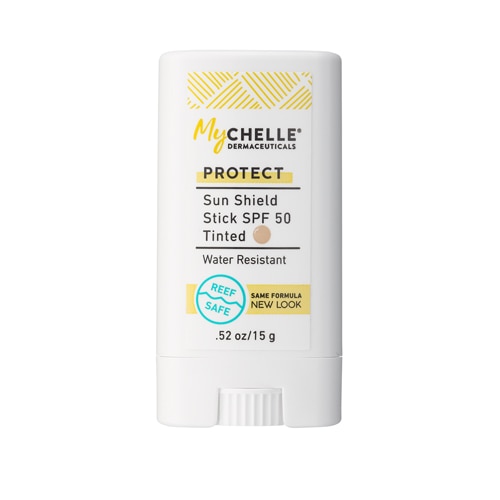We slather on sunscreen to block harmful UVB light, which can lead to sunburn and skin cancer. But does sunscreen also completely block absorption of
vitamin D, known as the “sunshine vitamin”?
The short answer: no.

The relationship between sunscreen and vitamin D
As
Harvard Medical School points out, the use of sunscreen theoretically lowers the amount of vitamin D we absorb. However, studies show everyday use of sunscreen does not shut down the body’s ability to synthesize vitamin D.
For instance, a
study published in 2019 in the British Journal of Dermatology found that sunscreen does not hinder production of vitamin D. An earlier
study, published in 1995 in the Archives of Dermatology, came to a similar conclusion. A
research review published in 2013 in the journal Photodermatology, Photoimmunology & Photomedicine indicated that while applying recommended amounts of sunscreen reduces vitamin D synthesis, it does not cause decreased levels of vitamin D.
“
Studies have never found that everyday sunscreen use leads to vitamin D insufficiency. In fact, people who use sunscreen daily can maintain their vitamin D levels,” the Skin Cancer Foundation
proclaims.
 What does vitamin D do?
What does vitamin D do?
We gain vitamin D from three sources: the sun, food and nutritional supplements. Exposure to sunlight enables the body to manufacture vitamin D. Even if sunscreen did block vitamin D, we’d still be able to get enough of the vitamin from vitamin D-fortified foods and from
nutritional supplements, medical experts say.
Vitamin D helps the body absorb calcium, which strengthens our bones. Our muscles and nerves also depend on vitamin D. Among other things, a lack of vitamin D may trigger osteoporosis, broken bones, muscle weakness or decreased immunity. Also, people with rheumatoid arthritis may suffer from vitamin D deficiency.
For those who are thinking about boosting their vitamin D intake through sun exposure, the Moffitt Cancer Center
offers this warning:
“Because there is no scientifically validated, safe threshold level of UV exposure that allows for maximum vitamin D production without increasing the risk of skin cancer, most experts continue to recommend the daily use of
sunscreen for everyone, including those who spend most or all of their time indoors.”
How to get more vitamin D
In fact, the American Academy of Dermatology advises against intentionally not applying sunscreen to crank up production of vitamin D through unexposed skin.
Instead, medical experts suggest making up for any loss of vitamin D due to lack of sun exposure by eating more vitamin D-fortified foods (like milk, yogurt, breakfast cereal and orange juice) or taking nutritional supplements that include vitamin D. Few foods naturally contain vitamin D,
according to the National Institutes of Health. But those that do include fatty fish, cheese and egg yolk.
Bumping up your intake of vitamin D through food or nutritional supplements may be especially important if you typically avoid sunlight, mostly stay in the shade when outdoors, regularly wear long sleeves outside or have darker skin pigmentation, according to the research review published in 2013.
 Vitamin D and COVID-19
Vitamin D and COVID-19
By the way, a
study released in May 2021 found “little to no evidence” that normal levels of vitamin D limit the risk or severity of COVID-19. This research came on the heels of a
study published in March 2021 that suggested above-normal levels of vitamin D might lower the risk of COVID-19 infection.
“There’s a lot of literature on vitamin D. Most of it has been focused on
bone health, which is where the current standards for sufficient vitamin D levels come from,” Dr. David Meltzer, lead author of the March 2021 study and chief of hospital medicine at the University of Chicago, says in a
news release. “But there’s also some evidence that vitamin D might improve immune function and decrease inflammation.”
†
“So far, the data has been relatively inconclusive,” Meltzer adds. “Based on these results, we think that earlier studies may have given doses that were too low to have much of an effect on the immune system, even if they were sufficient for bone health. It may be that different levels of vitamin D are adequate for different functions.”
†These statements have not been approved by the Food and Drug Administration. These products are not intended to diagnose, treat, cure or prevent disease.






